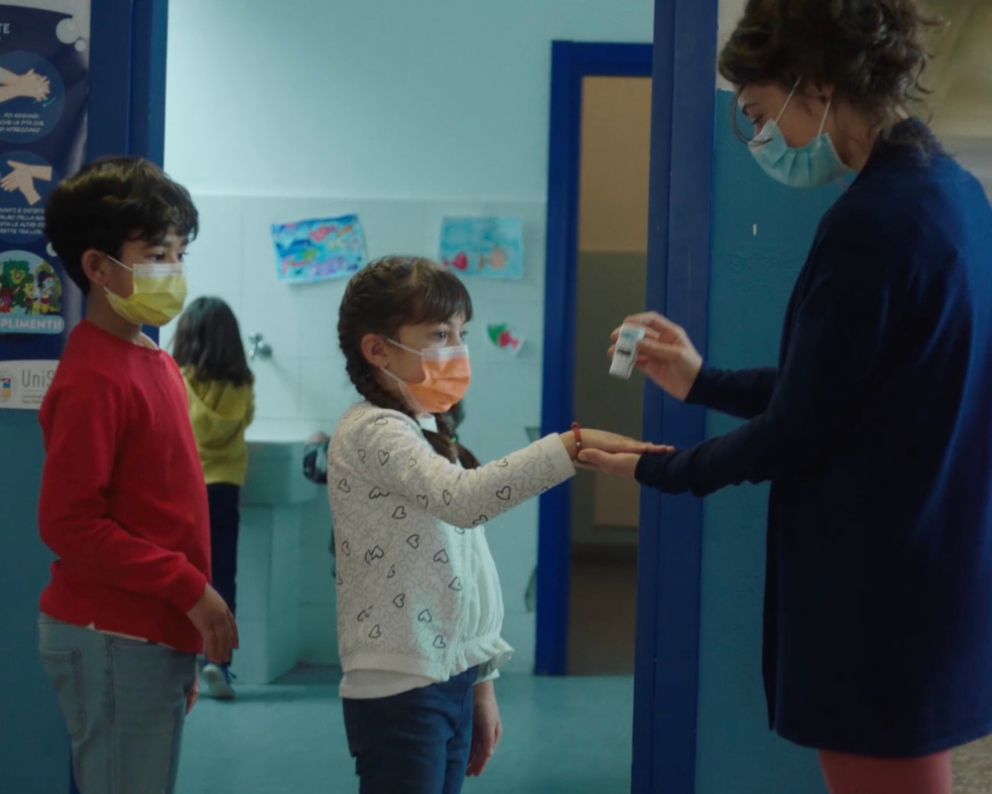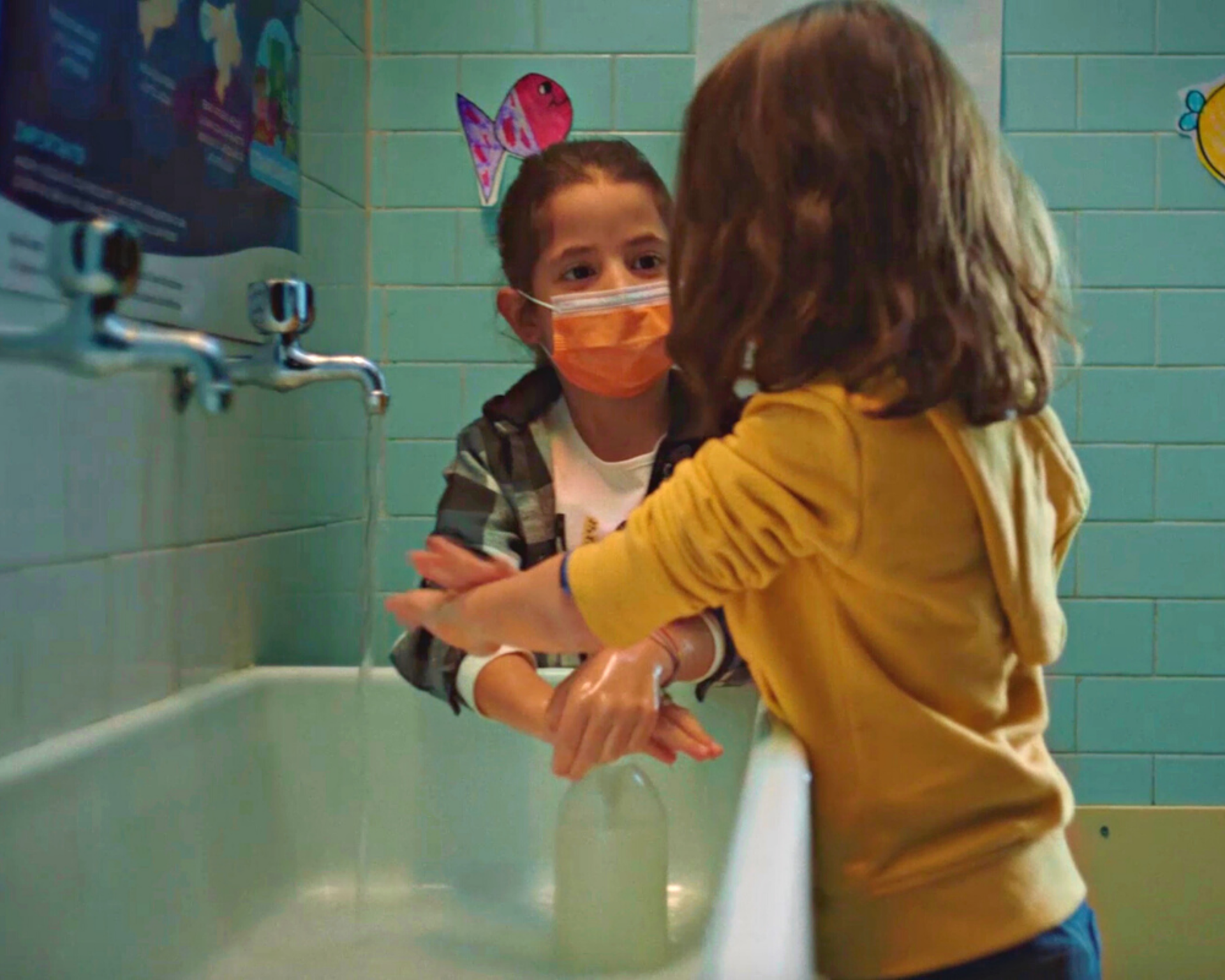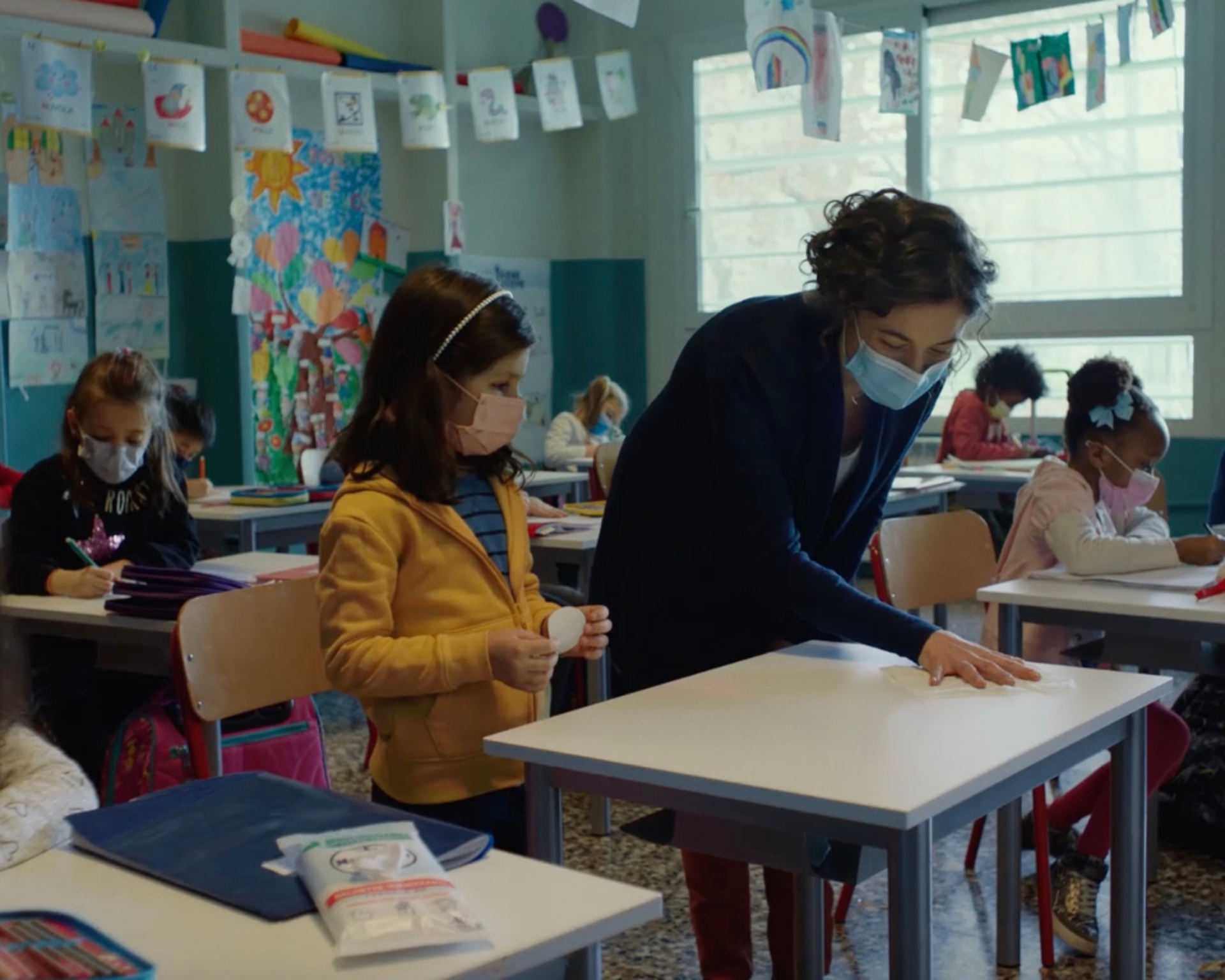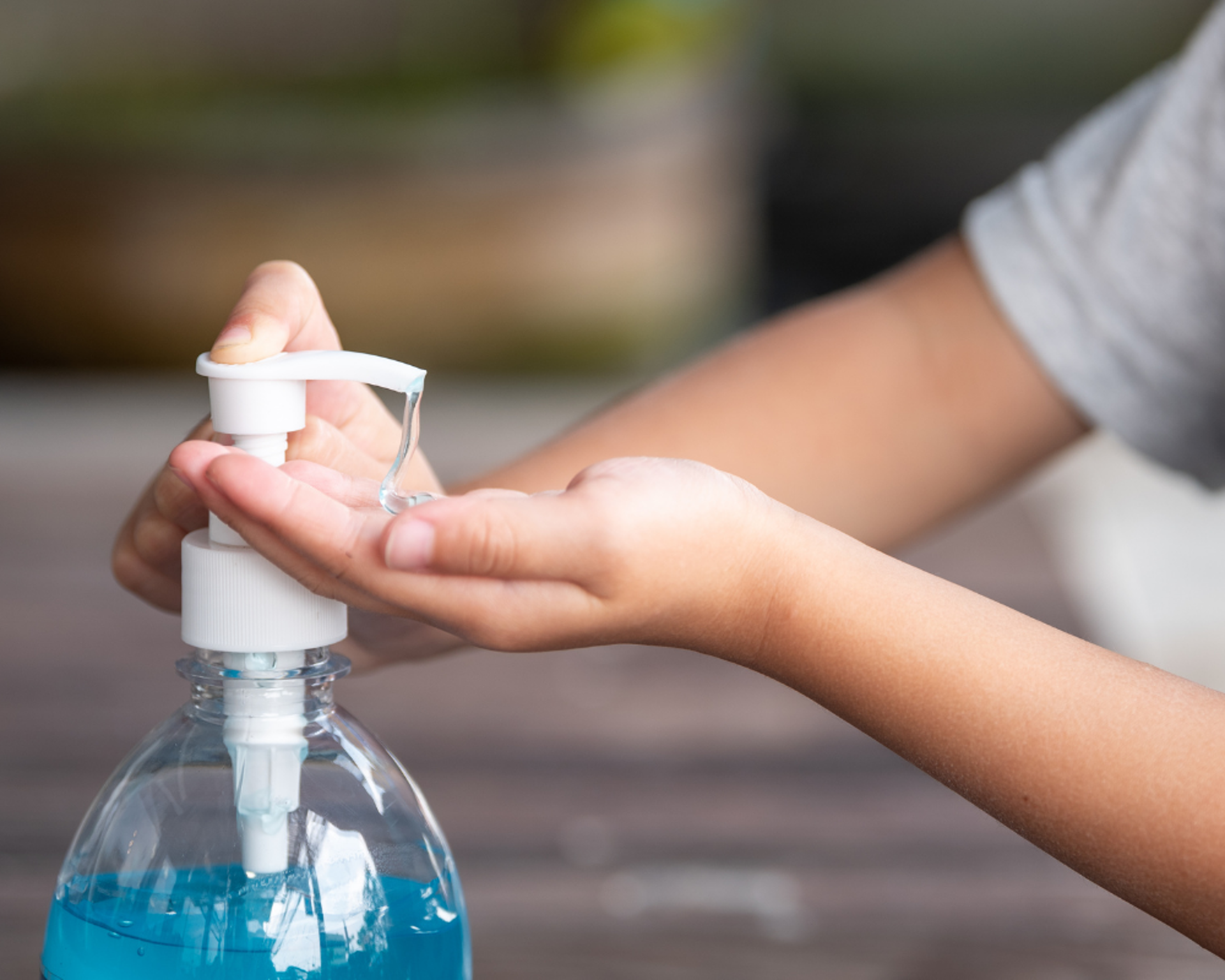
Educating the little ones about personal hygiene, such as washing their hands, keeping distance and cleaning objects and surfaces correctly, helps to curb the spread of the infection from SARS-CoV-2: this is revealed by a research conducted by the Vita-Salute San University. Raffaele as part of the "Hygiene Together" project by Napisan, a brand specialized in products for the deep hygiene of environments and surfaces.
The study was carried out during the second epidemic wave (autumn 2020) on a sample of 140 elementary schools in Lombardy, one of the Italian regions most exposed to the spread of Covid-19: in the schools where an informative and educational intervention was carried out, the incidence of SARS-CoV-2 infections was 14% lower than the regional average for children of the same age.

The “Hygiene Together” project and the study conducted
The research published in Acta Biomedica was born as part of the "Hygiene Together" project, conceived by Napisan with the scientific advice of the UniSR School of Hygiene and Preventive Medicine. To date, "Hygiene Together" is one of the very few programs developed on a national scale in Italy for the promotion of public health in schools, aimed at promoting health education and the prevention of infectious diseases in primary and childhood schools, through the distribution to schools of a “hygiene kit” containing educational and information materials and sanitizing products, and training courses for teachers.
With the aim of evaluating the importance of hygiene and education in contrasting the spread of the infection from Covid-19 in nursery and primary schools, in October 2020, the Vita-Salute San University Raffaele, through a team coordinated by Prof. Carlo Signorelli (Vita-Salute San Raffaele University) and with the participation of Anna Odone (Full Professor of Hygiene at the University of Pavia) and Lucia Bricchi (Doctor Specializing in Hygiene and Preventive Medicine of the University Vita-Salute San Raffaele), and with the partnership of La Fabbrica conducted an empirical observation in 140 schools in Lombardy participating in the Napisan "Hygiene Together" project which provided data on the new Covid-19 infections of the students.

In light of some primary limitations, such as the partial adherence of the institutes, the non-total compliance of the schools and the carrying out of the study in a region very much affected by the infection, although it is not possible to identify a certain correlation between the "Hygiene Together" project and the reduction of the infection rate, undoubtedly the measured data appears relevant also for the low number of researches of this type: standardizing the sample of schools of Hygiene Together with the total considered for Lombardy (100,000 inhabitants), two rates can be reported that show a clear reduction of the incidence of 14% in the schools adhering to “Hygiene Together”.
Prof. Signorelli comments:
“In recent weeks the spotlight has turned on schools, thanks to the spread of the Omicron variant but also the political will to avoid distance learning at all costs. Effective prevention of the transmission of infectious diseases in confined communities is implemented with various initiatives including information and education in correct individual behavior are of significant importance. Our research shows that effective interventions reduce the risk of infections”.

Hygiene Together: the news for the next school year
For the 2021/2022 school year, the objective of Napisan and the "Hygiene Together" project will be to expand the initiative even further, involving 2,000 new schools so as to reach a significant total of 10,000 institutions involved throughout Italy.
The project will then be an opportunity to reiterate the importance of disseminating good hygiene practices among the youngest, as well as to present the innovations envisaged in terms of contents, aimed at making the initiative more accessible and inclusive, through differentiation of materials between kindergartens and primary schools.
The educational materials distributed in the participating classes will therefore be profoundly renewed and aligned with the age of the students, to take into account the needs shown and emerged during the previous school year, with a keen eye on training and entertainment. In particular, great importance will be guaranteed to the differentiation of the message by age group between individual children.
The initiative is fully part of the Public Engagement activities to which the San Raffaele Campus has been dedicating for years with passion and enthusiasm, with a view to promoting the culture of health and prevention in society and on the territory, through the opportunities for mutual involvement and learning between scientists and the public.
You might be interested in
/resolutions/res-c660x528/Pensa_Aorta_Congresso_UniSR-(3).png)
UniSR hosts the launch of the “Pensa all'Aorta” campaign

UniSR PhD Courses 2025-2026
0/resolutions/res-c660x528/Cassandra_studio_pazienti_pancreas_UniSR-(1)0.png)
Pancreatic Cancer: New Treatment Guidelines Arising from a Patient-Funded Study
/resolutions/res-c660x528/Milani_terapia_genica_UniSR-(1).png)
